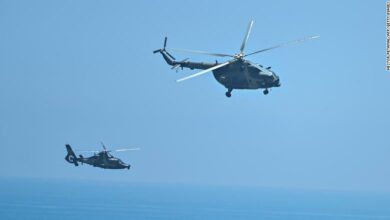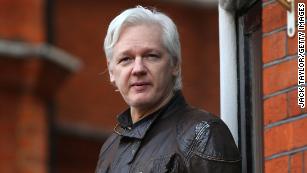Egypt's military junta is applying the same hated tactics of severe repression used by the former regime of President Hosni Mubarak, international human rights watchdog Amnesty International said in a report issued Tuesday, adding that the Supreme Council of the Armed Forces (SCAF) has "crushed" the hopes of revolutionary protesters.
Amnesty said in a lengthy report titled “Broken Promises: Egypt's Military Rulers Erode Human Rights” that “impunity for serious human rights violations, including unlawful killings, torture and other ill-treatment, and excessive use of force” has continued in Egypt since the fall of the hated Mubarak.
The report came as police and army forces continued their bloody crackdown on protesters in Tahrir, killing at least 28 in Egypt's worst wave of violence since the ouster of Mubarak, according to the Health Ministry's latest figures.
"The human rights balance sheet for SCAF shows that after nine months in charge of Egypt, the aims and aspirations of the 25 January revolution have been crushed. The brutal and heavy-handed response to protests in the last few days bears all the hallmarks of the Mubarak era,” said Philip Luther, Amnesty International’s Middle East and North Africa acting director.
The SCAF's disregard for life has become a common feature since it claimed power after the resignation of the former president on 11 February.
The report recalled the violence near the Maspero state TV building in which 28 people, mostly Copts, were killed on 9 October. Reportedly during the fighting, the army fired live ammunition while armored personnel carriers (APCs) ran over protesters.
Such unlawful killings were not investigated properly and the perpetrators seem to have eluded punishment.
“Instead of ordering an independent investigation, the army announced that it would carry out the investigation itself and moved quickly to suppress criticism,” reads the Amnesty report.
This is not the only such case, the report continues, and shows that the SCAF doesn’t enforce the same “effectiveness and impartiality of military investigations into abuses by the armed forces themselves.”
On 9 March, the army violently dispersed a sit-in of around 1000 protesters and arrested scores. Female detainees were reportedly subjected to torture and forced “virginity tests.”
The SCAF announced on 28 March that it would “investigate the use of forced 'virginity tests' by the army to intimidate 17 female protesters on 9 March, but no information about this investigation has been made public. Instead, the only woman who filed a complaint against the SCAF was said to have been subjected to harassment and intimidation,” says Amnesty.
Moreover, in September the SCAF said it would open an investigation over a video circulated showing army and police officers beating and shocking two detainees. The SCAF later dismissed the video as “fake” without providing any further details, according to Amnesty.
Instead, the SCAF tries to silence critics and restrict the freedom of expression.
"Those who have challenged or criticized the military council — like demonstrators, journalists, bloggers, striking workers — have been ruthlessly suppressed in an attempt to silence their voices,” said Luther.
The report documents seven notable examples about the SCAF summoning activists, journalists and bloggers. On 14 May, presidential hopeful Bothaina Kamel was questioned by military prosecutors after publicly criticizing the military council. On 31 May, blogger and political activist Hossam el-Hamalawy appeared before military prosecutors after he criticized the head of the military police. On 19 June, Al-Fagr journalist Rasha Azb was questioned by military prosecutors after reporting on a meeting between the SCAF and a group of Egyptian activists opposed to putting civilians before military trials.
Amnesty also documents the case of prominent blogger Alaa Abd El Fattah, who was detained after refusing to answer military prosecutors' questions over the Maspero incidents. He claimed he would not cooperate since the military was conducting the investigation despite being the main party accused of killing protesters. Abd El Fattah has been charged with inciting violence against military.
But perhaps the most egregious is the case of blogger Maikel Nabil, who Amnesty describes as a prisoner of conscience. Nabil was sentenced to three years in prison in April for documenting, on his blog, the human rights violations committed by the SCAF in dispersing protesters.
The report also documents the SCAF's violations of the individual's right to stand before an impartial judge, referring to the nearly 12,000 civilians across the country who have been tried before military courts since August. Some of these are grossly unfair trials in which at least 13 have been sentenced to death.
The number of cases brought before these military tribunals is more than the total number of civilians who faced military trials during the 30-year reign of Mubarak.
On Monday, presidential hopeful Mohamed ElBaradei, in criticizing the SCAF's handling of the transitional period, said that only civilians have been put before these trials while police officers accused of killing protesters during the 18-day uprising have not received verdicts.
"By using military courts to try thousands of civilians, cracking down on peaceful protest and expanding the remit of Mubarak's Emergency Law, the SCAF has continued the tradition of repressive rule which the 25 January demonstrators fought so hard to get rid of," said Luther.
The report concludes that the wave of arrests being carried out by the army are always marred by torture and other ill-treatment, such as beatings and electric shocks. As for the security apparatus, torture of detainees and prisoners has continued, with some losing their lives in custody from being tortured.
“No independent, impartial and thorough investigations are known to have been conducted into allegations or complaints of torture, and inquiries announced by the armed forces have not resulted in bringing members of the security forces — including military personnel — to justice for abuses,” says the report.




